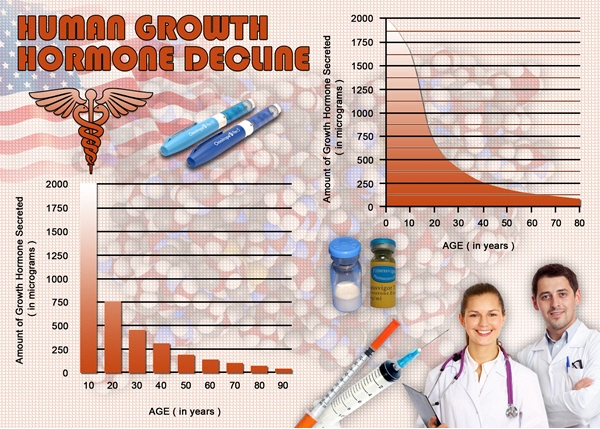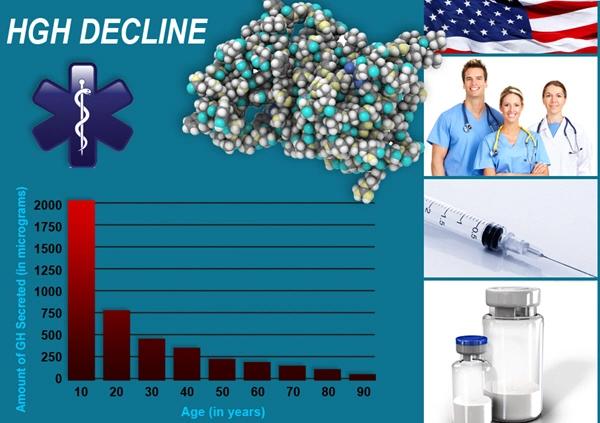Introduction to Aging and Sexual Health
As men age, various changes occur throughout the body, including alterations in sexual health and function. One of the less discussed but significant concerns for many American males is the phenomenon of penis shrinkage. This article aims to provide a comprehensive overview of this topic, addressing its causes, implications, and potential management strategies, tailored specifically to the American male demographic.
Understanding Penis Shrinkage
Penis shrinkage, or the perceived reduction in penis size, is a common concern among aging men. It is important to differentiate between actual physical changes and perceived changes. The penis may appear smaller due to a variety of factors, including weight gain, which can cause the penis to be less visible, and changes in erectile function.
Causes of Penis Shrinkage
Several factors contribute to penis shrinkage in aging men. One primary cause is the natural decline in testosterone levels, which can lead to a decrease in penile tissue elasticity and size. Additionally, conditions such as Peyronie's disease, where scar tissue forms in the penis, can cause curvature and a perceived reduction in size. Other contributing factors include chronic health conditions like diabetes, cardiovascular disease, and obesity, which can affect blood flow and overall penile health.
Impact on Mental Health and Well-being
The psychological impact of perceived penis shrinkage should not be underestimated. Many American men report feelings of embarrassment, anxiety, and a decrease in self-esteem, which can negatively affect their sexual relationships and overall quality of life. It is crucial for men to address these feelings openly and seek support from healthcare providers or mental health professionals.
Medical Interventions and Treatments
For men experiencing penis shrinkage, several medical interventions may be considered. Hormone replacement therapy (HRT) can be an option for those with low testosterone levels, potentially improving penile size and function. Medications such as phosphodiesterase type 5 inhibitors (e.g., Viagra, Cialis) can enhance blood flow and improve erectile function, which may help alleviate concerns about penis size.
In cases where Peyronie's disease is the cause, treatments such as collagenase injections or surgery may be recommended to correct curvature and improve penile appearance. It is essential for men to consult with a healthcare provider to determine the most appropriate treatment based on their specific health needs and conditions.
Lifestyle Modifications and Preventive Measures
In addition to medical treatments, lifestyle modifications can play a significant role in managing and potentially preventing penis shrinkage. Maintaining a healthy weight through regular exercise and a balanced diet can improve overall health and reduce the risk of obesity-related penis size reduction. Quitting smoking and limiting alcohol consumption can also enhance blood flow and penile health.
Regular sexual activity or masturbation can help maintain penile tissue health and elasticity. Additionally, practicing stress management techniques, such as meditation or yoga, can improve mental well-being and reduce the psychological impact of perceived penis shrinkage.
The Role of Regular Check-ups and Open Communication
Regular check-ups with a healthcare provider are crucial for monitoring overall health and addressing any concerns related to penis shrinkage. Open communication with healthcare professionals can help men receive accurate information and appropriate treatment options. It is also important for men to discuss their concerns with their partners, fostering a supportive and understanding relationship.
Conclusion: Embracing Change and Seeking Support
Penis shrinkage is a common concern among aging American males, but it is important to understand that it is a manageable condition. By addressing the underlying causes, seeking appropriate medical interventions, and making lifestyle modifications, men can improve their sexual health and overall well-being. Embracing the changes that come with aging and seeking support from healthcare providers and loved ones can help men navigate this aspect of their health with confidence and resilience.

- Unveiling the Enigma of Penile Reduction: Debunking Myths and Facing Realities [Last Updated On: February 25th, 2025] [Originally Added On: February 25th, 2025]
- Deciphering the Science of Diminished Male Endowment: An Insight into Penis Shrinkage and Precipitating Factors [Last Updated On: February 26th, 2025] [Originally Added On: February 26th, 2025]
- Understanding the Journey of Manhood: Changes in Penis Size as We Age [Last Updated On: February 27th, 2025] [Originally Added On: February 27th, 2025]
- Decoding the Enigma: Hormones, Health, and Male Genital Diminution [Last Updated On: February 28th, 2025] [Originally Added On: February 28th, 2025]
- Investigating the Correlation: Body Weight, Dietary Habits, and Masculinity [Last Updated On: March 1st, 2025] [Originally Added On: February 28th, 2025]
- Embracing Silent Stories: Unveiling the Truth About Penile Shrinkage [Last Updated On: March 1st, 2025] [Originally Added On: March 1st, 2025]
- Unraveling the Mystery: Genetics, Lifestyle, and the Phenomenon of Penis Shrinkage in American Males [Last Updated On: March 2nd, 2025] [Originally Added On: March 2nd, 2025]
- Exploring the Multifaceted Role of Testosterone in Muscle Growth, Bone Density, and Physical Development [Last Updated On: March 3rd, 2025] [Originally Added On: March 3rd, 2025]
- Understanding Penile Changes After Prostate Surgery: Outcomes and Management [Last Updated On: March 4th, 2025] [Originally Added On: March 4th, 2025]
- Exploring Exercise's Role in Enhancing Male Sexual Health and Erectile Function [Last Updated On: March 5th, 2025] [Originally Added On: March 5th, 2025]
- Understanding Blood Flow's Impact on Penile Health and Erectile Function [Last Updated On: March 6th, 2025] [Originally Added On: March 6th, 2025]
- Optimizing Male Sexual Health: Lifestyle Impacts of Smoking and Alcohol on Erectile Function [Last Updated On: March 7th, 2025] [Originally Added On: March 7th, 2025]
- Understanding Andropause: The Male Menopause and Its Effects on Penile Health [Last Updated On: March 7th, 2025] [Originally Added On: March 7th, 2025]
- Penile Atrophy in American Males: Causes, Signs, and Management Strategies [Last Updated On: March 8th, 2025] [Originally Added On: March 8th, 2025]
- Demystifying Penis Shrinkage: Causes, Myths, and Health Implications Explained Professionally [Last Updated On: March 8th, 2025] [Originally Added On: March 8th, 2025]
- The Interplay of Chronic Diseases on Male Genital Health: Implications and Management Strategies [Last Updated On: March 9th, 2025] [Originally Added On: March 9th, 2025]
- The Metabolic Link Between Diabetes and Reduced Organ Size in American Males [Last Updated On: March 14th, 2025] [Originally Added On: March 12th, 2025]
- The Impact of Environmental Toxins on Male Reproductive Health: A Focus on Penile Size [Last Updated On: March 13th, 2025] [Originally Added On: March 13th, 2025]
- Understanding Global Variations in Penile Dimensions: A Comprehensive Overview [Last Updated On: March 15th, 2025] [Originally Added On: March 15th, 2025]
- Inflammation, Oxidative Stress, and Penile Shrinkage: A Comprehensive Guide for American Males [Last Updated On: March 16th, 2025] [Originally Added On: March 16th, 2025]
- Natural Remedies for Penis Shrinkage: Herbs, Supplements, and Lifestyle for American Males [Last Updated On: March 19th, 2025] [Originally Added On: March 19th, 2025]
- Understanding Penile Aging: Shrinkage, Health, and Interventions in American Men [Last Updated On: March 19th, 2025] [Originally Added On: March 19th, 2025]
- Weight Loss and Penis Size: Reversing Shrinkage and Enhancing Men's Health [Last Updated On: March 19th, 2025] [Originally Added On: March 19th, 2025]
- Obesity's Impact on Male Genital Health: Understanding Penis Shrinkage [Last Updated On: March 20th, 2025] [Originally Added On: March 20th, 2025]
- Nutritional Strategies to Combat Penis Shrinkage in American Males [Last Updated On: March 20th, 2025] [Originally Added On: March 20th, 2025]
- High Blood Pressure's Impact on Penile Health and Size: Understanding Shrinkage [Last Updated On: March 20th, 2025] [Originally Added On: March 20th, 2025]
- Hormonal Imbalances and Their Impact on Penis Size in American Males [Last Updated On: March 20th, 2025] [Originally Added On: March 20th, 2025]
- Peyronie's Disease: Understanding Penis Shrinkage and Treatment Options [Last Updated On: March 21st, 2025] [Originally Added On: March 21st, 2025]
- Sedentary Lifestyles and Penis Shrinkage: Impacts and Mitigation Strategies for American Males [Last Updated On: March 21st, 2025] [Originally Added On: March 21st, 2025]
- Prostate Health and Penis Size: Understanding Impacts and Managing Shrinkage [Last Updated On: March 21st, 2025] [Originally Added On: March 21st, 2025]
- Penile Size Measurement and Shrinkage: Causes, Impacts, and Treatments for American Males [Last Updated On: March 22nd, 2025] [Originally Added On: March 22nd, 2025]
- Penile Measurement Techniques and Understanding Shrinkage in American Males [Last Updated On: March 22nd, 2025] [Originally Added On: March 22nd, 2025]
- Boost Testosterone Naturally: Diet, Exercise to Counter Penis Shrinkage in American Males [Last Updated On: March 23rd, 2025] [Originally Added On: March 23rd, 2025]
- Chronic Illness and Penis Shrinkage: Causes, Impacts, and Management Strategies [Last Updated On: March 23rd, 2025] [Originally Added On: March 23rd, 2025]
- Penile Shrinkage: When to Consult a Urologist for Size Changes [Last Updated On: March 23rd, 2025] [Originally Added On: March 23rd, 2025]
- Medications Linked to Penile Shrinkage: Mechanisms, Implications, and Management Strategies [Last Updated On: March 24th, 2025] [Originally Added On: March 24th, 2025]
- Understanding and Preventing Penile Shrinkage: A Comprehensive Guide for Men [Last Updated On: March 24th, 2025] [Originally Added On: March 24th, 2025]
- Anti-Inflammatory Diets: A Promising Approach to Preventing Penis Shrinkage in American Males [Last Updated On: March 24th, 2025] [Originally Added On: March 24th, 2025]
- HRT: A Promising Solution for Penis Shrinkage in American Males [Last Updated On: March 24th, 2025] [Originally Added On: March 24th, 2025]
- Chronic Stress and Cortisol: Impacts on Penile Health and Size in American Men [Last Updated On: March 24th, 2025] [Originally Added On: March 24th, 2025]
- Genetic Factors Influencing Penis Size and Shrinkage: A Comprehensive Overview [Last Updated On: March 24th, 2025] [Originally Added On: March 24th, 2025]
- Penis Shrinkage and ED: Causes, Treatments, and Importance of Medical Advice [Last Updated On: March 25th, 2025] [Originally Added On: March 25th, 2025]
- Sleep Disorders and Male Sexual Health: Understanding Penis Shrinkage Concerns [Last Updated On: March 25th, 2025] [Originally Added On: March 25th, 2025]
- Environmental Pollutants and Penis Shrinkage: Impacts on Male Reproductive Health [Last Updated On: March 25th, 2025] [Originally Added On: March 25th, 2025]
- Understanding Penile Atrophy: Causes, Symptoms, and Importance of Urological Exams [Last Updated On: March 25th, 2025] [Originally Added On: March 25th, 2025]
- Metabolic Syndrome and Penis Shrinkage: Causes, Impacts, and Management Strategies [Last Updated On: March 25th, 2025] [Originally Added On: March 25th, 2025]
- Preventing Penis Shrinkage: Diet, Exercise, and Lifestyle Tips for American Males [Last Updated On: March 25th, 2025] [Originally Added On: March 25th, 2025]
- Smoking Cessation and Penile Health: Reversing Shrinkage in American Males [Last Updated On: March 25th, 2025] [Originally Added On: March 25th, 2025]
- Emerging Therapies for Penile Shrinkage: Hope for American Men's Sexual Health [Last Updated On: March 25th, 2025] [Originally Added On: March 25th, 2025]
- Managing Perceived Penis Shrinkage: Effective Psychological Strategies for Men [Last Updated On: March 26th, 2025] [Originally Added On: March 26th, 2025]
- Inflammation's Impact on Penis Size: Cellular, Vascular, and Hormonal Factors [Last Updated On: March 26th, 2025] [Originally Added On: March 26th, 2025]
- Understanding Penis Shrinkage in Aging Men: Causes, Impacts, and Management Strategies [Last Updated On: March 26th, 2025] [Originally Added On: March 26th, 2025]
- Vascular Surgery: A Promising Solution for Penis Shrinkage and Penile Health [Last Updated On: March 26th, 2025] [Originally Added On: March 26th, 2025]
- Alcohol's Impact on Penile Health: Moderation and Lifestyle Choices [Last Updated On: March 26th, 2025] [Originally Added On: March 26th, 2025]
- Preventing Penile Shrinkage: Enhancing Vascular Health in American Males [Last Updated On: March 27th, 2025] [Originally Added On: March 27th, 2025]
- American Men's Journeys with Penile Atrophy: Challenges and Medical Interventions [Last Updated On: March 27th, 2025] [Originally Added On: March 27th, 2025]
- Relationship Dynamics and Perceived Penis Shrinkage: Strategies for Enhancing Male Self-Esteem [Last Updated On: March 27th, 2025] [Originally Added On: March 27th, 2025]
- Penile Atrophy: Causes, Effects, and Treatment Options for American Males [Last Updated On: March 27th, 2025] [Originally Added On: March 27th, 2025]
- Cardiovascular Fitness: Key to Enhancing Penile Health and Preventing Shrinkage [Last Updated On: March 27th, 2025] [Originally Added On: March 27th, 2025]
- Penile Atrophy: Understanding Causes, Treatments, and Breaking the Stigma [Last Updated On: March 27th, 2025] [Originally Added On: March 27th, 2025]
- Androgens and Penile Health: Understanding Shrinkage and Holistic Management Strategies [Last Updated On: March 27th, 2025] [Originally Added On: March 27th, 2025]
- Meditation and Stress Reduction: Keys to Preventing Penis Shrinkage [Last Updated On: March 27th, 2025] [Originally Added On: March 27th, 2025]
- Exercise Mitigates Age-Related Penile Shrinkage in American Males: Scientific Insights and Recommendations [Last Updated On: March 28th, 2025] [Originally Added On: March 28th, 2025]
- Chronic Diseases and Penile Shrinkage: Impacts and Management for American Males [Last Updated On: March 28th, 2025] [Originally Added On: March 28th, 2025]
- Weight Fluctuations and Penis Size: Understanding the Impact and Managing Health [Last Updated On: March 28th, 2025] [Originally Added On: March 28th, 2025]
- Penile Health: Function, Sensation, and Addressing Shrinkage in American Males [Last Updated On: March 29th, 2025] [Originally Added On: March 29th, 2025]
- Penis Shrinkage: Causes, Treatments, and Future Innovations in Urological Care [Last Updated On: March 29th, 2025] [Originally Added On: March 29th, 2025]
- Sleep Quality's Impact on Sexual Health and Preventing Penile Shrinkage in American Males [Last Updated On: March 29th, 2025] [Originally Added On: March 29th, 2025]
- Guide to Accurate Penile Measurement and Understanding Shrinkage Concerns [Last Updated On: March 29th, 2025] [Originally Added On: March 29th, 2025]
- Understanding Penile Atrophy: Causes, Diagnosis, and Effective Management Strategies for American Males [Last Updated On: March 29th, 2025] [Originally Added On: March 29th, 2025]
- Overcoming Perceived Penis Shrinkage: Psychological Strategies for American Men's Confidence [Last Updated On: March 31st, 2025] [Originally Added On: March 31st, 2025]
- Superfoods Boost Vascular Health, Potentially Preventing Penis Shrinkage in American Males [Last Updated On: April 1st, 2025] [Originally Added On: April 1st, 2025]
- Understanding Penile Size: Facts, Factors, and Coping Strategies for American Males [Last Updated On: April 3rd, 2025] [Originally Added On: April 3rd, 2025]
- Andropause and Penis Health: Understanding and Managing Penis Shrinkage in American Men [Last Updated On: April 4th, 2025] [Originally Added On: April 4th, 2025]
- Blood Pressure Medications and Penile Shrinkage: Insights and Management for American Males [Last Updated On: April 6th, 2025] [Originally Added On: April 6th, 2025]
- Managing Chronic Stress to Prevent Penis Shrinkage: Practical Tips for Men [Last Updated On: April 7th, 2025] [Originally Added On: April 7th, 2025]
- Hormonal Health and Penis Size: Understanding and Prevention Strategies for American Males [Last Updated On: April 8th, 2025] [Originally Added On: April 8th, 2025]
- Understanding and Addressing Penis Shrinkage: A Guide for American Males and Partners [Last Updated On: April 9th, 2025] [Originally Added On: April 9th, 2025]
- Cardiovascular Exercise: Enhancing Genital Health and Debunking Penis Shrinkage Myths [Last Updated On: April 9th, 2025] [Originally Added On: April 9th, 2025]
- Managing Penis Shrinkage: Importance of Regular Health Check-Ups for American Males [Last Updated On: April 9th, 2025] [Originally Added On: April 9th, 2025]



List of USA state clinics - click a flag below for blood testing clinics.
Word Count: 616



















































